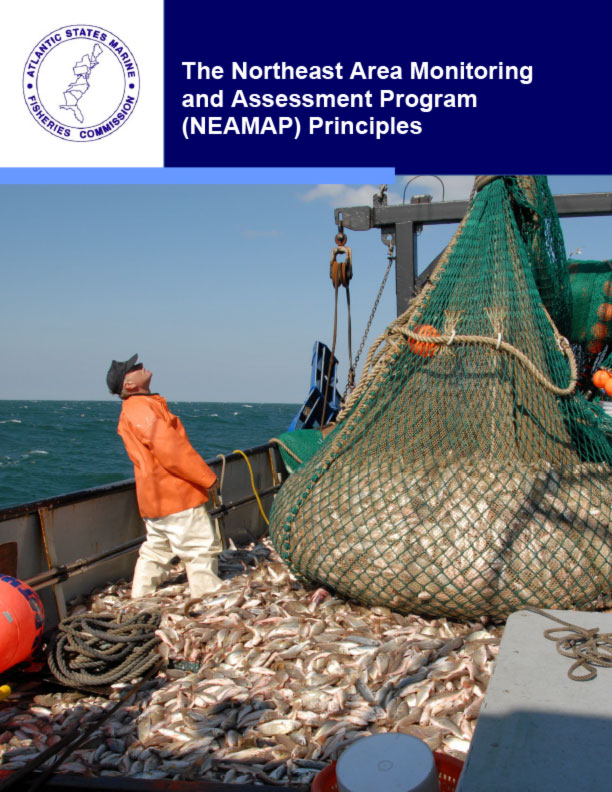This assessment of the Atlantic Herring (Clupea harengus) stock is a management track assessment of the existing 2022 management track assessment conducted using the ASAP model. Based on the previous assessment, the stock was overfished but overfishing was not occurring. This assessment updated fishery catch data, survey indices, life history parameters (e.g., weights-at-age), and the ASAP assessment model and reference points (BRPs) through 2023. No significant changes were made to the methods in this assessment.
Fisheries Science
Sustainable fisheries management depends on sound, timely scientific advice. The Fisheries Science Program delivers this through a rigorous, peer-reviewed stock assessment process, utilizing a mix of fishery-independent surveys and fishery-dependent monitoring, complemented by research from coastal state, federal, and academic institutions. The program also focuses on developing innovative scientific methods and enhancing state stock assessment capabilities, while coordinating and expanding collaborative research and data collection efforts.
-
-
This assessment of the Black Sea Bass (Centropristis striata) stock is a Level-2 2024 management track assessment which updates the 2023 research track assessment model using the WHAM framework to fit a spatially explicit model specified for two regions, North or South of Hudson Canyon.
-
This document summarizes the 2024 stock assessment update for horseshoe crab. The assessment is an update to the 2019 benchmark stock assessment and extends the fishery-independent and -dependent data for horseshoe crab through 2022, reruns the models, and determines stock status.
-
The purpose of this assessment is to update the 2019 Horseshoe Crab Benchmark Stock Assessment (ASMFC 2019) with recent data from 2018-2022 and evaluate the current status of horseshoe crabs along the US Atlantic coast. This coastwide assessment is different from the Adaptive Resource Management (ARM) Framework, which evaluates the population in the Delaware Bay and recommends harvest with consideration for migratory shorebirds.
-
-
-
-
NEAMAP surveys are conducted by NEAMAP partners; they include both partner and Operations Committee designed surveys, and operate on local and regional spatial scales. NEAMAP surveys are designed to collect long-term fishery-independent data on species abundance, distributions, and life history, as well as related ecosystem and environmental information.
Get Hooked on ASMFC News
Dive into the latest updates and catch all the important news by joining our newsletter mailing list. Stay in the loop with meeting agendas, fisheries management news, and more.
